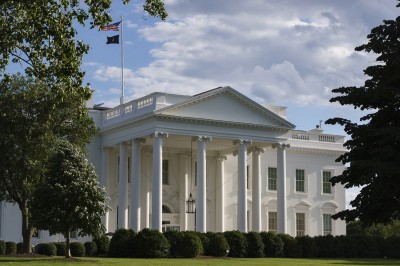You have full access to this article via your institution.
On 2 July, a science initiative was born in a lecture hall in London. The Metascience Alliance is a coalition of more than 25 funders, academic groups, companies and other institutions that pursue metascience: the use of scientific methods to understand and improve science itself.
The alliance is starting now because the community has reached critical mass and achieved broader recognition. The Metascience 2025 Conference, at which the initiative was launched, was attended by more than 830 participants from around 65 countries. Organizers had to turn people away from the summit, which is one of the biggest of its type. But the alliance and the burgeoning field must now chart their direction with care. Metascience is coming of age at a time when research is experiencing phenomenal change: artificial intelligence (AI) is transforming science rapidly; research budgets are being squeezed in many places; and science is being politicized and attacked. Metascientists can help to tackle these issues by pursuing bold studies that aid science, but they should deploy their skills for the benefit of wider society, too.
Trump’s call for ‘gold standard science’ has prompted an outcry: here’s why
Researchers have been studying science in university departments of science and technology studies and elsewhere for decades. By the 2010s, metascience was booming, in part because of growing awareness of problems with reproducibility and research integrity, which has led to calls for reform to how science is conducted, assessed and published. Metascience has essentially become a broad umbrella that includes investigations of peer review, reproducibility, research evaluation, research impact, open science and citation analysis. It also encompasses the analysis of career paths, funding and inequality and equity in science (S. Shapin Annu. Rev. Sociol. 21, 289–321; 1995). In the last year, the field has been “exploding”, says Tim Errington, senior director of research at the Center for Open Science, a non-profit group in Washington DC that is supporting the alliance.
AI in science was a big theme at last week’s meeting. Researchers are already using large language models — a form of generative AI — to speed up everything from allocating research funding to synthesizing evidence. Metascience studies can also help to document how AI is changing science, and help funders and policymakers to think strategically about which areas of research AI could have the biggest impact in.
Some policymakers are already interested in the field. Last year, the UK government launched a Metascience Unit, a first-of-its-kind team that is based in the Department of Science, Innovation and Technology and UK Research and Innovation, the country’s largest public research-funding agency. The unit funds and commissions studies that examine the country’s complicated research environment to work out how it can be improved.
The UK launched a metascience unit. Will other countries follow suit?
However, some scientists who were at the London meeting are struggling to persuade senior leaders, worried about reputational damage to their organizations, to publish studies describing poor research practices. US research institutions are among those likely to be extremely cautious if they are scared about retribution from the country’s administration. Potential misuse of metascience poses a dilemma: how to communicate problems such as the difficulty of reproducibility in a way that it is not misused to undermine the foundations of science itself.
But trying to brush the problems in research under the carpet would be worse. Science is under intense scrutiny and that means it’s important for researchers to discuss any weaknesses in the system openly and to use rigorous methods and data to address them. Metascientists should also examine how trust in science has been eroded in some countries and how it can be rebuilt, including by demonstrating the value of public research funding for society. Moreover, they should help researchers to improve the ways they communicate uncertainty and the process of research. If researchers and science communicators know how to transparently discuss the ‘how’ as well as the ‘what’ of science, it could help them to respond to those who try to undermine science, for example, when people wrongly say that scientists cannot be trusted if they change their minds.
How to speed-up peer review: make applicants mark one another
Ultimately, metascientists must guard against the risk of becoming overly focused on generating studies that are mainly of interest to other researchers and their institutions. Their work can and must serve wider societal needs. At the meeting, for example, there was at times more discussion about ways in which to improve research production — such as through faster peer review — than about how to ensure that research addresses important policy and societal problems. That balance needs to shift.
Errington says that the Metascience Alliance wants to identify and fill such gaps in the field and is looking for partners who can bring in fresh input — several sessions at the meeting were dedicated to generating ideas. Metascience is at an exciting stage during a dangerous moment for the world. Metascientists should heed the call of UK science minister Patrick Vallance to both challenge the scientific system and support citizen needs. We want metascientists to use their skills and talents to shape and improve research, but they must not stop there. They need to think equally about how to be useful to society. That is a serious responsibility, too.





